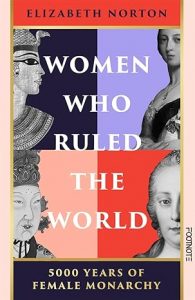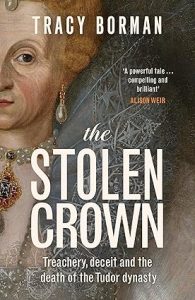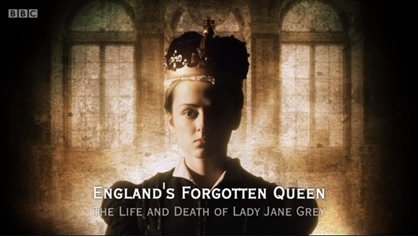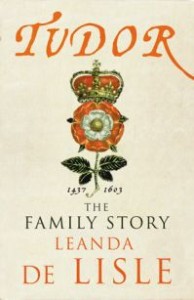Late June 2013 – The Tudor Rose: Princess Mary Rose, Henry VIII’s Sister by Jennifer Kewley Draskau
‘The beautiful sister of Henry VIII, the spoiled darling of the court, Princess Mary Rose Tudor was married off to the ailing King of France against her will, and, after his death, had to fight for the right to marry Henry’s favourite companion, Charles Brandon, Duke of Suffolk. After bearing him four children, Mary Rose died in the full flower of her beauty. Her adored husband, too busy to attend her funeral, soon married the 14-year-old fiancee of their only surviving son, who shortly thereafter died of TB. Her older daughter, Frances, was the mother of the ill-fated Jane Grey, the ‘Nine Days Queen.’ Her second daughter, Eleanor, was the grandmother of Fernando, 5th Earl of Derby, intended by Henry VIII to inherit the throne after Elizabeth. The Tudor Rose is the previously untold story of Mary Tudor and the role she and her descendants played in Tudor England.’
28th July 2013 – Royal Exiles: from Richard the Lionheart to Charles II [Paperback] by Iain Soden
‘’I know there are but few steps between the prisons and graves of princes’ Charles I The experience of exile and captivity, usually in war, was not uncommon for medieval kings and princes. Many knew the joy of survival followed by the frustration of being caged; some tried to govern from exile; others adapted and took advantage of a temporary release from duty; most canvassed allies and very few gave up hope. This book chronicles the experiences of capture, flight, captivity or exile as they languished far from home and the highs and lows of their attempts to regain a life to which they could relate. From Richard the Lionheart in 1192 to Charles II in 1651, a succession of England’s kings and princes were forced to flee into exile or endure captivity at home or abroad, as were foreign royalty in English hands. Even kings can be pawns in the great game of international diplomacy. Royal lineage brought privilege but also great danger. Those who suffered in this way lived periods of great frustration and of edge-of-the-seat uncertainty, surrounded by spies and guards, governing or simply relating to the outside world in secret or by smuggled letter. Negotiations for their release, when possible, were often half-hearted and subject to conflicting agendas. Returns could be torrid affairs and often involved force of arms. Some were broken by their experiences. Others came back with tales of adventure and derring-do. Most were forgotten or wrapped in layers of propaganda, put in the shade by their subsequent successful reigns or their ignominious end. It is a story of privileged lives rendered helpless, and of keeping a flame of hope alive.’





































